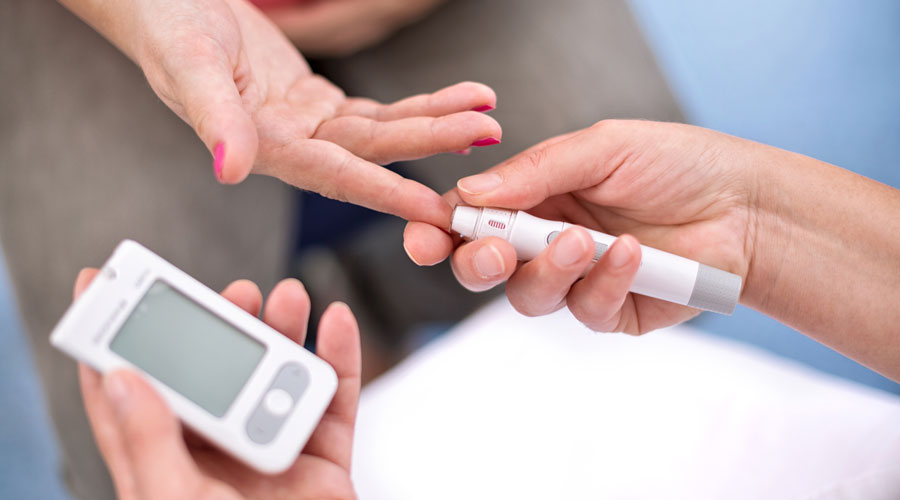Your diabetes patients need more than medicine.
According to a new study, almost half of people with diabetes struggle with anxiety and guilt about their diabetes management.
It drains their mental and emotional energy.
And nearly half of healthcare practitioners said managing their patients’ emotional issues played a major part in their success in treating diabetes.
For someone who’s on the front-line of patient care, these findings probably don’t surprise you. As an independent community pharmacist, you’ve seen firsthand the emotional difficulties of managing diabetes.
Patients already come to you more often than they go to their physician. They can walk in and talk to you about their diabetes without an appointment. And, they receive personal treatment and care from someone they trust.
When your independent community pharmacy provides your patients with a deeper level of care, you do more than any other practitioner to improve their outcomes.
And one of the best ways your pharmacy can provide emotional support is to offer patients comprehensive services for managing their diabetes. Because patients’ emotional stress is tied to feeling overwhelmed by both lifestyle and medication management.
Help your diabetes patients by providing helpful solutions that make managing their diabetes easier.
5 Ways Your Pharmacy Can Help Diabetes Patients
Your pharmacy can offer a variety of services to help your patients’ manage their diabetes.
Some will bring in extra revenue. Others will give you opportunities to market your pharmacy.
All of them will boost your business.
And most importantly, all of them will help improve your patients’ emotional stress.
1. Offer diabetes education classes
Diabetes education classes help patients better understand their condition. And classes enable them to learn how to manage their disease.
Here are some possible education programs to offer:
- Diabetes food tour: Take patients on a tour through the local grocery store. Hire a diabetes educator to explain how to read food labels and offers healthy eating tips.
- Healthy eating classes: Host a class to provide helpful ideas and tips on eating well. Ask a local nutritionist to lead the class.
- National Diabetes Education Program: The National Diabetes Education Program provides patient education materials and tools to help healthcare professionals better care for patients with diabetes or who may be at risk for diabetes.
- Senior center days: Make it easy for older patients to learn about diabetes by holding a simple diabetes education class at your town’s senior center.
2. Conduct medication reviews
Managing multiple medications is one of the most overwhelming—and emotionally taxing—parts of living with diabetes.
Help ease your patients’ burden by reviewing their medications with them.
Discuss any medication interactions, inform them about possible side effects and help them with medication planning.
And, make sure patients know you offer medication reviews.
Ways to inform your patients of medication reviews:
- Include a brochure in prescription bags for insulin
- Put up a sign near the pharmacy counter
- Tell patients about the service when they pick up their prescriptions
3. Offer blood glucose testing
Diabetes patients spend time and energy constantly keeping their blood glucose levels in check.
If they lapse at the wrong time, they’ll suffer health consequences. Those risks and that level of upkeep can cause patients significant emotional anxiety.
Help them manage their glucose levels more easily by providing glucose testing. While you can’t test them every day, you can help make sure they understand how to properly test their blood sugar levels. And, you can check to make sure they’re keeping up with it.
It’ll not only help patients ensure healthy levels of blood sugar but will also give them the ability to speak with a pharmacist about what their results mean.
Which can give them confidence and peace of mind.
These screenings also present an opportunity to form a relationship with patients and inform them about your diabetes education classes or supplementary diabetes products.
4. Provide supplementary diabetes products
Support patients’ entire diabetic needs by offering supplementary products beyond prescription medication.
Here are some supplementary products to stock:
- Glucose products: Patients need a fast-acting glucose tablet, gel or shot to raise blood sugar during a hypoglycemic event without causing a blood sugar spike.
- Lancets: Patients need a new lancet for every test to reduce the risk of infection and pain.
- Skin care products: Patients need a daily deep-moisturizing skin care regimen for dry or cracked skin commonly caused by diabetes.
- Supplements: Patients need a daily fiber supplement for nutritional support and to slow the uptake of sugar into the bloodstream.
- Syringes: Patients need a quality silicone-coated syringe to ensure a comfortable experience and proper insulin injection.
5. Promote mobile management
Smartphone apps, email and texting can help diabetes patients better manage their condition.
People constantly use their smartphones. When they get a reminder on their phone, they’re going to see it within a reasonable time.
So, use text messaging and emails to communicate with patients. Reminders can help them stay on track with their medication and blood sugar testing.
Also, encourage your patients to download mobile apps that built to help them manage diabetes.
Here are some apps to recommend:
Diabetes and Blood Glucose Tracker by MyNetDiary
The Diabetes and Blood Glucose Tracker by MyNetDiary app is a diabetes tracker that shows patients a comprehensive overview of their blood glucose factors by counting carbs, recording medication intake, exercise and more. (Here’s the version for Android.)
Glooko
The Glooko app allows patients to download diabetes device data to their smart device, integrate food and lifestyle data, and share reports with their healthcare team.
Glucose Buddy
The Glucose Buddy app records blood glucose levels, insulin injections, and diet and exercise information.
mySugr
The mySugr app is an interactive logbook that helps patients manage and track their blood sugar, medications and activity levels.
One Drop
The One Drop app is a diabetes management platform that allows patients to see how food, insulin, and activity relate to their glucose levels. They can also connect with others in the One Drop community.
Help your diabetes patients stay emotionally healthy by offering the comprehensive support they need.
Want more pharmacy business tips and advice? Sign up for our e-newsletter.












